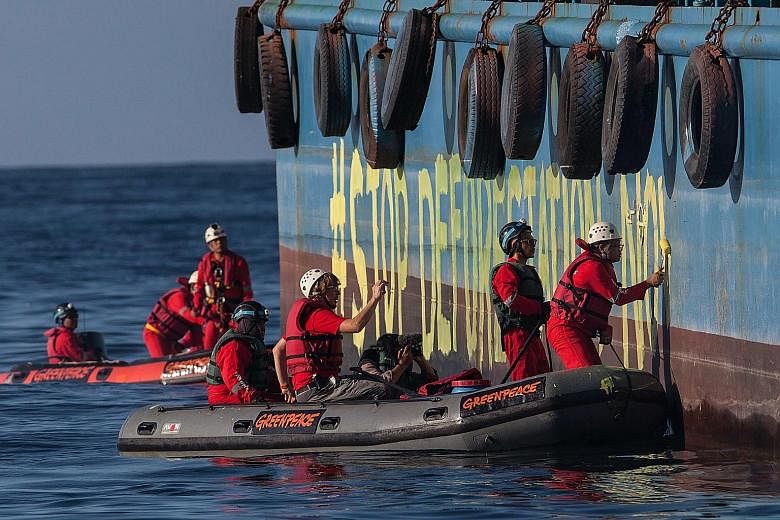LANGKAT (Sumatra) • Indonesian oil palm farmer Kawal Surbakti said his livelihood is under attack, but the threat is not from insects or orang utans eating his prized crop.
Half a world away, the European Parliament is moving to ban the use of palm oil in biofuels, while British grocer Iceland has announced it will stop using the commodity over concerns that it causes widespread environmental destruction.
Losing the key European market worries small farmers like Mr Surbakti and millions of others in Indonesia and neighbouring Malaysia - the world's top two producers - as prices drop for an oil found in everything from biscuits and sweets to cosmetics and vehicle fuel tanks.
Some three million people in Indonesia - the world's biggest palm oil exporter - are said to be working in the sector.
"I've suffered serious losses," Mr Surbakti, 64, said from his 2ha farm on Indonesia's Sumatra island. "Before, I could save up a little money but now I can't even do that."
Across the Malacca Strait in Malaysia, grower Mohamad Isa Mansor issued a dire prediction as he plucked reddish-orange fruit from his trees. "If the European Union succeeds in the ban, I'm dead," he said at his small plantation in the coastal town of Ijok.
"Without this crop, we will be living in poverty. It is the source of income for thousands of people (here)," he added.
Europe is one of the world's biggest palm oil consumers, along with India and China.
About half of the palm oil used last year in Europe was for biofuels that ended up in petrol tanks, according to environmentalists.
An EU ban would threaten the livelihoods of 650,000 smallholders and over 3.2 million Malaysians who rely on the industry, according to the Malaysian Palm Oil Council.
Indonesia and Malaysia have threatened retaliatory sanctions on European goods over the proposed palm oil ban, which calls for a complete biofuel phase-out by 2030. The legislation is awaiting a final vote and member-state approval.
As the diplomatic row smoulders, Indonesian grower Selamet Ketaren said he and other small farmers are pawns at the mercy of land-clearing multinational firms that buy their crops.
"Smallholder farmers like us are just victims of the big corporations," said Mr Ketaren, who has been growing oil palm since the mid-1980s.
Environmentalists accuse the multibillion-dollar industry of destroying huge swathes of rainforest, home to indigenous communities, orang utans and other threatened species.
Critics say oil palm development also contributes to climate change through deliberate forest-clearing fires, which release carbon dioxide into the atmosphere and lung-clogging smog into the region's air.
But Malaysian farmer Mansor rejects the depiction of growers as an environmental threat. "(The EU) says we cut down the forest. But my land is on peat soil - there was rubber growing here before," he said. "How can the EU claim I'm killing the earth?"
AGENCE FRANCE-PRESSE

